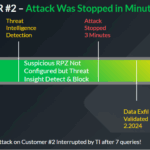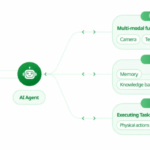
Entrepreneurs can make a meaningful difference by starting a purposeful business. Use these principles to discover and validate socially-conscious ideas that can have an impact on your community.
JOHN SCHNOBRICH ON UNSPLASH
For many entrepreneurs, the key motivation to start a business is seeking to solve an everyday problem or inconvenience—quite often one that you yourself have experienced. This can serve as a great motivator, helping provide the passion you need to avoid burnout and successfully deal with the many obstacles that’ll come your way.
However, many find their entrepreneurial ventures to be even more fulfilling when they find an idea the truly works for the greater good of society. Though finding a way to support yourself financially and help bring about societal change may feel like they’re in direct opposition with each other, meshing the two is far from impossible.
This became clear during a recent interview I did with Cat Noone, founder and CEO of Iris, as well as a conversation with Mike Kogan, ambassador relationship manager with Compel America. Here are their insights on finding business ideas that work for the greater good:
1. Start With Solving Your Own Problems
As with other successful startup ideas, a business concept focused on the greater good will usually begin when you recognize a need (or gap) in your own life or community.
“The idea for Iris came from me being in the position of a user,” Noone explains. “I was living overseas and I looked at my boyfriend and realized that if we were to get in a car accident or something similarly catastrophic at the time, we’d be screwed.”
In Noone’s situation (waiting for a permanent visa to arrive), her passport wouldn’t help much with the police after something like an accident. If she had to go to a hospital, she’d be without a way to reach her family, nor would her doctors know who to immediately contact.
It was a serious concern, and one where she certainly wasn’t alone. This led her to start developing the emergency communications app that’d become Iris. By identifying noteworthy issues in your own life or community, you already have a good starting point.
2. Speak With Your Audience
Beyond simply solving your own problems, much can also be learned from better understanding the challenges of others in your community. Take fellow guest Mike Kogan’s example.
“Our goal at Compel America is to help eradicate bullying,” Kogan explains. “But what we see, is that often, anti-bullying efforts only focus on one group—kids getting bullied. The problem is much broader than that. It involves parents, educators, employers and even the bullies themselves. When seeking validation for a socially conscious idea, you need to be mindful of the multitude of groups that are impacted by your core problem.”
It can help to take a step back and look at your business idea in a broader context. While there may be one group that’s your primary focus, any concept centered around the greater good will have an impact that reaches beyond just that initial target audience.
Speaking with others who’d be impacted by your product or service will prove essential for gaining a better understanding of how the concept would work in the real world.
3. Use Your Network
For Noone, using her own connections was a valuable initial source of validation and feedback.
“I’m fortunate enough that in the tech community there are a ton of people working on the road… the majority of them have older parents or older grandparents who Iris would apply to. Over the course of my time in tech and design so far, I made it a point to really build up a network,” she explains.
Noone adds, “I’m not one for really tapping into favors, but at this time I reached out to everyone I knew.” This mindset even helped her get in contact with medical professionals, another key audience for her emergency notification app.
“I also was connected with a doctor who worked on my grandfather’s team when he was in the hospital for end-stage cancer. You don’t forget those people, and depending on the scenario, they usually don’t forget you either,” Noone explains. Taking time to build relationships now, regardless what stage your idea is in today, will help you find the people best-suited to help you in the validation process.
4. Do As Much Outreach As Possible
Your own network won’t often provide all the answers you need.
“You have to be willing to put yourself out there in order to get feedback,” Kogan explains. “Emails, phone calls, even social media outreach. When you fully explain the problem you’re trying to solve and how you hope to address it, you’ll be amazed at how many people will be willing to provide their feedback.”
These sentiments were also echoed in my interview with Noone, who noted that she used connections in medical startups and even posts on Twitter and Facebook to get in contact with doctors. Though not every outreach attempt will yield a response, expanding your reach will help you better gauge your idea’s potential impact.
5. Start Building
As important as it is to seek validation for your idea, you can’t present a theoretical concept without eventually having something concrete to back it up.
According to Noone, entrepreneurs need to ask themselves, “At what point are you kind of over-validating? Are you asking the right questions that are actually getting the answers you need, or are you asking the wrong ones? Did you get a lot of no’s, did you get a lot of yeses, are there mixed feelings about it? There needs to be a time when you scale back validation work and finally get to building.”
When you start to build your own solution or partner up with an existing franchise business that targets the problem you want to solve, you’ll be able to get better validation in your local community as people start interacting with your product or service. Continual iteration and testing will ensure that your idea accomplishes your initial goals.
Entrepreneurs really can make a meaningful difference through a purposeful business. As you use these principles to discover and validate socially-conscious ideas, you’ll create solutions that can have an incredible impact on your community—and possibly the entire world.
[“source=forbes”]





















































